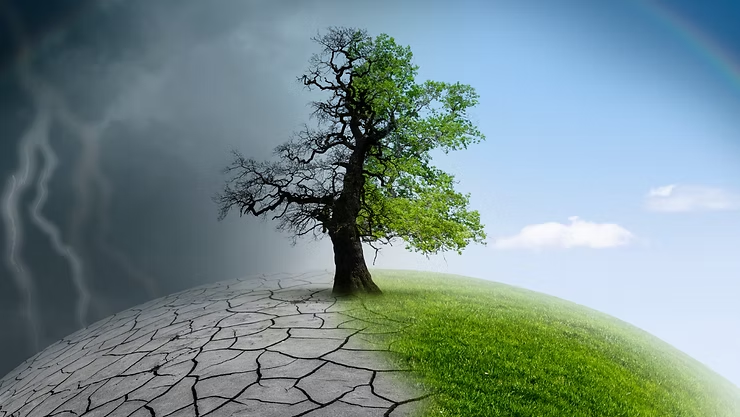Climate Change: The Urgent Crisis We Can’t Ignore
Climate change is a global issue with far-reaching impacts on the environment, human health, and economies. Immediate action is essential to mitigate its effects and protect future generations.
Key Takeaways
- Rising global temperatures
- Extreme weather events
- Melting ice caps
- Rising sea levels
- Loss of biodiversity
- Health impacts
- Economic consequences
- Displacement and migration
- Food security challenges
- The role of individuals in climate action
Rising Global Temperatures: The Heat is On
Global temperatures are increasing, leading to:
- More frequent heatwaves and heat-related illnesses
- Intense wildfires
- Changes in precipitation patterns
- Disrupted ecosystems and biodiversity loss
These impacts are happening now and require urgent mitigation efforts.
Extreme Weather Events: Brace Yourself
Climate change intensifies extreme events such as hurricanes, tornadoes, droughts, and heatwaves, causing:
- Property damage and loss of life
- Disruption of essential services like power and water
- Threats to agriculture and food production
- Health risks from disease and heat
Melting Ice Caps: The Disappearing Act
Rising temperatures are causing Arctic and Antarctic ice to melt, which:
- Destroys habitats for polar bears, penguins, and seals
- Disrupts marine food chains
- Releases freshwater into oceans, altering currents and weather patterns
Rising Sea Levels: Threat to Coastal Communities
Melting ice and warming oceans increase sea levels, risking:
- Flooding and erosion of coastal areas
- Loss of homes and infrastructure
- Contamination of freshwater sources
Mitigation strategies include emissions reduction, coastal defenses, and sustainable land use practices.
Loss of Biodiversity: The Web of Life Unravels
Climate change accelerates species extinction, affecting ecosystems and humans. Key impacts include:
- Decline of plants and animals essential for food, medicine, and clean water
- Disruption of keystone species and ecosystem stability
Conservation and climate action are crucial to preserving biodiversity.
Health Impacts: The Toll on Our Well-Being
Climate change affects human health through:
- Heat-related illnesses and mortality
- Waterborne diseases from changing precipitation and rising seas
- Increased spread of infectious diseases
- Respiratory and cardiovascular problems from air pollution
Economic Consequences: The Cost of Inaction
Failing to act on climate change impacts economies by:
- Increasing infrastructure repair and healthcare costs
- Reducing productivity in agriculture and tourism
- Causing job losses and social inequality
Displacement and Migration: The Search for Refuge
Extreme weather forces communities to relocate, leading to:
- Competition for limited resources
- Strained social services
- Loss of cultural identity
- Mental and emotional stress
Food Security: Feeding a Changing World
Climate change threatens food production through:
- Disrupted crop yields from droughts and floods
- Reduced nutritional quality of crops
- Loss of pollinators and decreased biodiversity
Solutions include sustainable farming, biodiversity conservation, and climate-resilient agriculture.
The Role of Individuals: Making a Difference
Everyone can contribute by:
- Reducing carbon footprint through energy efficiency and sustainable transportation
- Supporting renewable energy sources like solar and wind
- Advocating for climate policies and collective action
Conclusion
Climate change is urgent, affecting health, ecosystems, economies, and human livelihoods. Immediate mitigation and adaptation actions are essential for a sustainable future.
Frequently Asked Questions
- What is climate change? Long-term changes in temperature, precipitation, and other climate aspects, mainly caused by human activity.
- How does it affect the environment? Rising temperatures, extreme weather, melting ice, sea level rise, and biodiversity loss.
- What are the health impacts? Heat-related illnesses, respiratory issues, infectious diseases, water scarcity, and mental health stress.
- What are the economic consequences? Infrastructure damage, reduced productivity, healthcare costs, and job losses.
- How does it affect food security? Crop disruptions, reduced yields, and decline in pollination and nutrition.
- What can individuals do? Reduce emissions, adopt sustainable lifestyles, support renewables, and advocate for climate policies.
- What is the role of governments? Implement policies, invest in clean energy, and promote international cooperation.
- How can we mitigate its impacts? Reduce emissions, implement sustainable land/water management, and enhance resilience in vulnerable communities.

